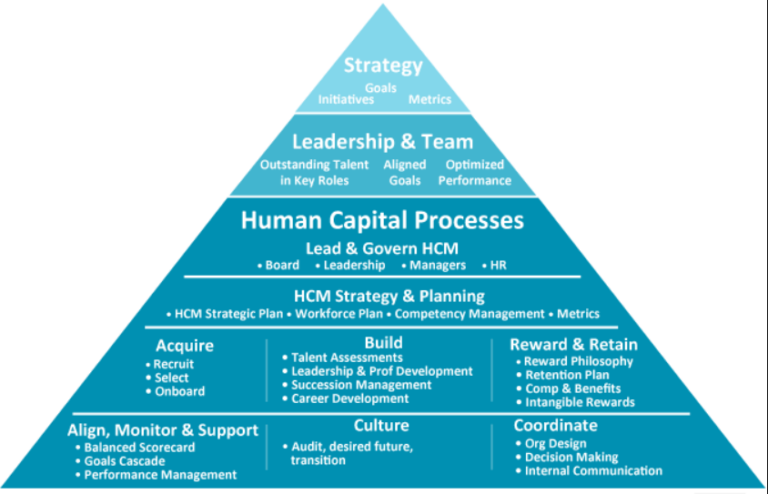Masters In Nursing Education programs are transforming the landscape of healthcare. These advanced degree programs equip nurses with the pedagogical skills and knowledge to become effective educators, mentors, and leaders within the nursing profession. This guide delves into the curriculum, career paths, and various aspects of pursuing a Master’s degree in Nursing Education, providing a comprehensive overview for prospective students.
From understanding program requirements and exploring diverse specializations to navigating financial aid and career progression, we aim to provide clarity and valuable insights into this rewarding field. We’ll cover everything from the core coursework and research opportunities to the differences between online and traditional learning models, ensuring you’re well-informed before embarking on this academic journey.
Curriculum and Coursework
A Master’s in Nursing Education (MNE) program equips nurses with the pedagogical and leadership skills needed to excel in various educational roles. The curriculum is designed to be rigorous, balancing theoretical knowledge with practical application, preparing graduates to effectively teach and mentor future nurses. The program’s structure varies slightly between institutions, but core components remain consistent across most accredited programs.
MNE programs typically integrate coursework, research, and clinical practice to provide a well-rounded educational experience. Students will engage with both theoretical frameworks and real-world applications, developing a deep understanding of adult learning principles, curriculum development, and instructional strategies specific to nursing education.
Core Courses in Masters in Nursing Education Programs
Core courses provide a foundational understanding of nursing education principles and practices. These courses lay the groundwork for more specialized electives and build essential skills for effective teaching and leadership within nursing education settings. Common core courses include: Curriculum Development and Design, Adult Learning Principles, Instructional Strategies in Nursing Education, Assessment and Evaluation in Nursing Education, Educational Technology in Nursing, and Research Methods in Nursing Education.
These courses often involve practical assignments, such as designing a lesson plan, developing an assessment tool, or conducting a small-scale research project.
Elective Courses and Specializations
Many MNE programs offer a range of elective courses, allowing students to tailor their education to specific interests and career goals. These electives provide opportunities for deeper exploration of particular areas within nursing education. Examples include: Simulation-Based Learning in Nursing, Global Health Nursing Education, Nursing Informatics and Technology Integration, Leadership and Management in Nursing Education, and Health Policy and Advocacy in Nursing.
A student interested in online education might focus on electives in online teaching methodologies and educational technology, while someone interested in leadership might choose courses in organizational behavior and change management.
Sample Weekly Schedule for an MNE Student
This is a sample schedule and may vary depending on the program’s structure and individual student’s course load. The balance between coursework, research, and clinical practice will fluctuate throughout the program.
| Day | Morning | Afternoon | Evening |
|---|---|---|---|
| Monday | Curriculum Development class | Research project work | Reading and assignment preparation |
| Tuesday | Adult Learning Principles class | Clinical preceptorship observation | Assignment completion |
| Wednesday | Independent study | Clinical preceptorship participation | Literature review |
| Thursday | Instructional Strategies class | Group project meeting | Assignment submission |
| Friday | Educational Technology class | Data analysis for research project | Professional development activities |
Key Skills and Competencies Developed
Graduates of MNE programs develop a comprehensive skill set encompassing teaching, leadership, and research. They become proficient in designing and delivering engaging and effective nursing curricula, assessing student learning, and utilizing technology to enhance the learning experience. Critical thinking, problem-solving, and communication skills are also honed throughout the program. Furthermore, graduates develop leadership skills to manage teams, advocate for nursing education initiatives, and contribute to the advancement of the nursing profession.
The program fosters a deep understanding of adult learning theories and their application in diverse nursing education settings. Graduates are prepared to be effective instructors, mentors, and leaders in the field of nursing education.
Faculty and Research Opportunities

A Master’s in Nursing Education program boasts a faculty team possessing extensive experience in both nursing practice and education. Their expertise ensures students receive a high-quality education grounded in real-world applications and current research. Access to these experts opens doors to collaborative research projects and mentorship opportunities, significantly enhancing the learning experience.
Faculty Qualifications and Expertise
Faculty members typically hold doctoral degrees (PhD, EdD, DNP) in nursing, education, or related fields. Many have years of experience as registered nurses in diverse clinical settings, bringing valuable practical knowledge to the classroom. Their research interests often align with current trends in nursing education, such as innovative teaching methodologies, curriculum development, and technology integration in nursing education.
Furthermore, many faculty members hold leadership positions within professional nursing organizations, contributing to their influence and the program’s overall prestige.
Potential Research Areas in Nursing Education
Research in nursing education is a dynamic field constantly evolving to address the challenges and opportunities facing the nursing profession. Current areas of exploration include the effectiveness of various teaching strategies in diverse learning environments, the impact of technology on student learning outcomes, the development of culturally competent curricula, and strategies to improve retention and graduation rates among nursing students.
Another significant area of research focuses on the development of effective leadership and management skills among nursing educators. Finally, the integration of simulation-based learning and its impact on clinical competency is also a significant area of current research.
Resources and Support for Student Research
The program provides substantial resources to support student research. These resources include access to university libraries, research databases, and statistical software. Students also receive mentorship from experienced faculty members who guide them through the research process, from developing research questions to disseminating findings. Funding opportunities, such as grants and scholarships, may be available to support research projects.
Furthermore, the program often facilitates opportunities for students to present their research findings at professional conferences, furthering their development as researchers and scholars.
Potential Masters in Nursing Education Thesis Topics
Choosing a relevant and impactful research topic is crucial for a successful Master’s thesis. Below are some potential areas:
- The effectiveness of simulation-based learning in improving clinical skills among nursing students.
- The impact of technology-enhanced learning on student engagement and learning outcomes in nursing education.
- Developing culturally competent curricula to address the needs of diverse student populations.
- An exploration of innovative teaching strategies to enhance critical thinking skills in nursing students.
- Strategies to improve the retention and graduation rates of nursing students from underrepresented minority groups.
- The role of mentorship in supporting the professional development of new nursing educators.
- The effectiveness of different assessment methods in evaluating student learning in nursing.
- The impact of faculty workload on the quality of nursing education.
Program Accreditation and Recognition

Choosing a Masters in Nursing Education program is a significant investment of time and resources. Ensuring the program’s quality and value is paramount, and that’s where accreditation comes in. Accreditation signifies that a program meets rigorous standards and prepares graduates for successful careers. It’s a crucial factor to consider when selecting a program.Accreditation provides a level of assurance to prospective students, employers, and the broader nursing community that the program adheres to nationally recognized benchmarks for quality and effectiveness.
This ensures graduates possess the necessary knowledge, skills, and competencies required for advanced practice and leadership roles within the field of nursing education.
Accrediting Bodies for Masters in Nursing Education Programs
Several organizations accredit Masters in Nursing Education programs. The specific accrediting body will vary depending on the program’s focus and location. Accreditation ensures the program’s curriculum, faculty, resources, and overall quality meet established standards. The accreditation process itself is a rigorous one, involving extensive self-study and external review.
Benefits of Graduating from an Accredited Program
Graduating from an accredited Masters in Nursing Education program offers several key advantages. These benefits extend beyond simply obtaining a degree; they significantly enhance career prospects and professional credibility.
- Enhanced Credibility and Recognition: Accreditation signals to potential employers that you’ve completed a high-quality program meeting established professional standards. This can significantly improve your job prospects and earning potential.
- Improved Job Opportunities: Many employers prioritize hiring graduates from accredited programs. This preference stems from the confidence accreditation provides in the quality of education and the graduates’ preparedness.
- Increased Earning Potential: Graduates from accredited programs often command higher salaries due to the increased demand for their skills and qualifications.
- National and International Recognition: Accreditation provides recognition beyond your immediate geographic area, opening up broader career opportunities.
- Access to Resources and Networks: Accredited programs often have stronger ties to professional organizations and resources, providing graduates with valuable networking opportunities and support.
Examples of Highly Regarded Masters in Nursing Education Programs
Several institutions offer highly regarded Masters in Nursing Education programs. These programs often stand out due to their unique strengths, such as specialized tracks, strong faculty expertise, and innovative teaching methodologies. The following are a few examples, though this list is not exhaustive. Note that specific program features and strengths can change over time, so it’s essential to check directly with the institutions for the most up-to-date information.
- University of Pennsylvania: Known for its rigorous curriculum and strong emphasis on research. Their program often incorporates cutting-edge technologies and pedagogical approaches. Strengths include:
- Emphasis on evidence-based practice in nursing education.
- Strong faculty with extensive experience in nursing education research and leadership.
- Opportunities for collaboration with leading healthcare institutions in the Philadelphia area.
- Columbia University: Offers a comprehensive curriculum with a focus on leadership and innovation in nursing education. The program boasts a diverse faculty and strong emphasis on community engagement. Strengths include:
- Strong emphasis on leadership development and curriculum design.
- Opportunities for collaboration with leading healthcare institutions in New York City.
- A diverse and supportive learning environment.
- University of California, San Francisco (UCSF): Renowned for its innovative approach to nursing education and strong ties to the UCSF Health system. Strengths include:
- Focus on technology integration in nursing education.
- Strong clinical partnerships and experiential learning opportunities.
- A commitment to diversity and inclusion.
Online vs. Traditional Programs: Masters In Nursing Education
Choosing between an online and a traditional Master’s in Nursing Education program is a significant decision, impacting learning style, flexibility, and overall cost. Both formats offer pathways to a rewarding career, but they cater to different learning preferences and lifestyles. Understanding the nuances of each approach is crucial for making an informed choice.
Online and traditional Master’s in Nursing Education programs share the common goal of preparing qualified educators, but their delivery methods significantly differ. Traditional programs offer in-person instruction, fostering immediate interaction and a strong sense of community. Online programs, conversely, leverage technology to deliver course content, assignments, and assessments remotely, offering flexibility but requiring self-discipline and technological proficiency.
Technological Requirements and Support Systems for Online Learning
Successful online participation requires reliable technology and robust support systems. Students need consistent access to a high-speed internet connection, a functional computer with sufficient processing power and memory, and compatible software. Furthermore, the program should provide technical support to address any technological glitches or questions promptly. Effective online learning platforms often include features such as video conferencing tools, interactive learning modules, and digital libraries.
Access to these resources is crucial for engagement and successful completion of coursework. A lack of reliable internet access or suitable technological infrastructure can severely hinder a student’s ability to participate effectively.
Learning Experience Differences, Masters In Nursing Education
The learning experience differs significantly between online and traditional programs. Traditional programs offer face-to-face interaction with instructors and peers, fostering immediate feedback and collaborative learning opportunities. Discussions and group projects naturally occur in a shared physical space. Online programs, while often incorporating virtual discussion forums and group projects, may require more self-directed learning and proactive engagement to build connections with instructors and peers.
The immediacy of feedback and the spontaneous collaboration found in a traditional classroom setting are often replicated in online programs through scheduled virtual meetings and discussion boards, but this requires more deliberate effort from the student.
Comparison of Online and Traditional Master’s in Nursing Education Programs
The following table summarizes key differences between online and traditional Master’s in Nursing Education programs:
| Feature | Online Program | Traditional Program | Considerations |
|---|---|---|---|
| Flexibility | High; allows for asynchronous learning and accommodates diverse schedules. | Lower; requires attendance at scheduled classes and on-campus activities. | Consider personal commitments and work schedules when choosing. |
| Cost | Potentially lower; may reduce expenses related to commuting, accommodation, and on-campus resources. However, technology costs should be considered. | Potentially higher; includes tuition, commuting costs, and potentially on-campus housing. | Compare total program costs, including technology expenses for online programs. |
| Interaction with Faculty and Peers | Primarily through online platforms; requires proactive participation in virtual discussions and forums. | Face-to-face; allows for spontaneous interaction and collaborative learning. | Consider preferred learning style and comfort level with online communication. |
| Learning Environment | Self-directed learning; requires strong self-discipline and time management skills. | Structured learning environment; provides a supportive and collaborative learning community. | Evaluate personal learning preferences and ability to thrive in a self-directed learning environment. |
Financial Aid and Funding Opportunities
Pursuing a Master’s in Nursing Education is a significant investment, but numerous financial aid and funding options can help make it attainable. Understanding these resources is crucial for prospective students to plan their education effectively and minimize financial burden. This section Artikels the various avenues for securing funding, from institutional aid to external scholarships.
Types of Financial Aid and Scholarships
Many institutions offering Masters in Nursing Education programs provide a range of financial aid options. These typically include federal student loans (such as Stafford Loans), institutional grants based on merit or financial need, and scholarships specifically earmarked for nursing education. Some universities offer tuition remission or waivers for employees or alumni. Additionally, many private organizations and foundations award scholarships to students pursuing advanced nursing degrees.
The specific types of aid available will vary depending on the institution and the applicant’s individual circumstances. Eligibility requirements often include factors such as GPA, program of study, and demonstrated financial need.
Application Process for Financial Aid and Scholarships
The application process for financial aid generally involves completing the Free Application for Federal Student Aid (FAFSA) form. This form collects information about your financial situation and is used to determine your eligibility for federal student loans and grants. Separately, many scholarships require completion of individual applications, which often involve essays, transcripts, letters of recommendation, and a statement of purpose outlining your academic and career goals.
Deadlines for both FAFSA and individual scholarships vary widely, so careful attention to application timelines is critical. Many universities maintain online portals that consolidate information on available funding opportunities and provide step-by-step instructions for applying.
Examples of External Funding Sources
Beyond institutional aid, numerous external organizations offer funding for Masters in Nursing Education students. The American Association of Colleges of Nursing (AACN) provides a comprehensive list of scholarships and grants. The National League for Nursing (NLN) also offers various scholarship programs. Many professional nursing organizations, such as the American Nurses Association (ANA), offer scholarships or grants to their members.
Additionally, numerous private foundations and corporations provide funding for graduate studies in nursing, often focusing on specific areas of specialization or addressing particular healthcare needs. For instance, a foundation focused on geriatric care might offer scholarships specifically for students pursuing education in geriatric nursing.
Step-by-Step Guide for Applying for Financial Aid
Securing financial aid for a Masters in Nursing Education program requires a systematic approach. Here’s a step-by-step guide:
- Complete the FAFSA: Begin by completing the Free Application for Federal Student Aid (FAFSA) form. This is a crucial first step for accessing federal student aid.
- Research Institutional Aid: Explore the financial aid opportunities offered directly by the university or college where you plan to study. Check their website for information on grants, scholarships, and loans specifically for graduate students.
- Identify External Scholarships: Research external scholarships and grants from professional organizations, foundations, and corporations. Use online search engines and databases like those maintained by the AACN and NLN.
- Prepare Application Materials: Gather all necessary application materials, including transcripts, letters of recommendation, and personal statements. Ensure all documents are meticulously prepared and submitted on time.
- Track Application Deadlines: Keep a close watch on all application deadlines. Submit your applications well in advance to avoid missing opportunities.
- Monitor Your Application Status: Regularly check the status of your applications to ensure they are processed efficiently and address any queries promptly.
Ending Remarks

Ultimately, a Masters in Nursing Education represents a significant investment in both personal and professional growth. By equipping nurses with advanced teaching and leadership skills, these programs are instrumental in shaping the future of nursing education and improving patient care. Whether you’re drawn to the challenges of curriculum development, the satisfaction of mentoring future nurses, or the impact of advancing nursing research, this degree offers a rewarding path to a fulfilling career and a lasting contribution to the healthcare field.
We hope this guide has provided the necessary information to help you make an informed decision about pursuing this valuable qualification.
FAQ Overview
What is the average length of a Masters in Nursing Education program?
Most programs range from 18 to 24 months, depending on the program structure and credit requirements.
Are there prerequisites for admission to a Masters in Nursing Education program?
Yes, typically a Bachelor of Science in Nursing (BSN) and a minimum GPA are required. Some programs may also require relevant work experience and standardized test scores (like the GRE).
What is the difference between a MSN in Nursing Education and a Doctor of Nursing Practice (DNP) with a focus on education?
An MSN in Nursing Education focuses primarily on developing teaching and curriculum development skills. A DNP emphasizes advanced clinical practice and leadership roles, often including a focus on education within a broader scope of practice.
Can I work while pursuing a Masters in Nursing Education?
Many programs offer flexible scheduling options, including online or part-time formats, to accommodate working professionals. However, the feasibility depends on the program’s structure and individual workload.





